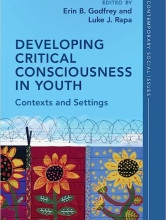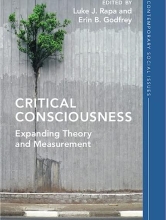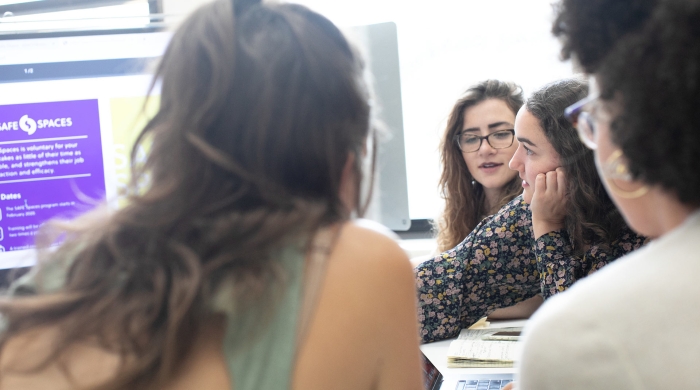Erin Godfrey, Associate Professor of Applied Psychology and Director of the Institute of Human Development and Social Change, released two books in the Contemporary Social Issues Series with Luke J. Rapa of Clemson University on critical consciousness titled Developing Critical Consciousness in Youth: Contexts and Settings and Critical Consciousness: Expanding Theory and Measurement.
Critical consciousness is a key developmental competency that involves critically reflecting on the sources of social inequity, feeling motivated and capable to change these realities, and taking concrete actions to do so. These books showcase new thinking in the field on critical consciousness development and how it can be fostered among youth.
“These two books are great resources for scholars, practitioners, and students interested in learning about how critical consciousness is developed and the ways it can be nurtured” said Dr. Godfrey. “Critical consciousness can be an important pathway for navigating and resisting oppression. The insights presented in each of the chapters represent the innovation and ingenuity required to develop a collective understanding of the social realities of our present moment and actions that can be taken to disrupt the negative consequences of those realities.”
Check out the books and their abstracts below. Both books are available to NYU affiliates at the NYU Libraries. Their links are also provided below. If you have any questions, contact ihdsc@nyu.edu.

Developing Critical Consciousness in Youth: Contexts and Settings
Edited by Erin B. Godfrey and Luke J. Rapa
Critical consciousness is the ability to critically analyze societal inequities and to develop the motivation and agency to promote social change. While there has been a proliferation of empirical work on critical consciousness over the last two decades, this is the first volume to consider how we can support youth's critical consciousness development – their ability to recognize and fight injustice. Leading scholars address some of the field's most urgent questions: How does critical consciousness develop? What are the key developmental settings (such as homes, schools, community programs) and societal experiences (racism, policy brutality, immigration, political turmoil) that inform critical consciousness development among youth? Providing novel insights into key school-based, out-of-school-based, and societal contexts that propel youth to greater critical reflection and action, this book will benefit scholars and students in developmental, educational, and community psychology, as well as practitioners working in schools, community-based organizations, and other youth settings.

Critical Consciousness: Expanding Theory and Measurement
Edited by Luke J. Rapa and Erin B. Godfrey
Critical consciousness represents the analysis of inequitable social conditions, the motivation to effect change, and the action taken to redress perceived inequities. Scholarship and practice in the last two decades have highlighted critical consciousness as a key developmental competency for those experiencing marginalization and as a pathway for navigating and resisting oppression. This competency is more urgent than ever given the current sociopolitical moment, in which longstanding inequity, bias, discrimination, and competing ideologies are amplified. This volume assembles leading scholars to address some of the field's most pressing questions: How does critical consciousness develop? What theories can be used to complement and enrich our understanding of the operation of critical consciousness? How might new directions in theory and measurement further enhance what is known about critical consciousness? It offers cutting-edge ideas and answers to these questions that are of critical importance to deepen our critical consciousness theory and measurement.



